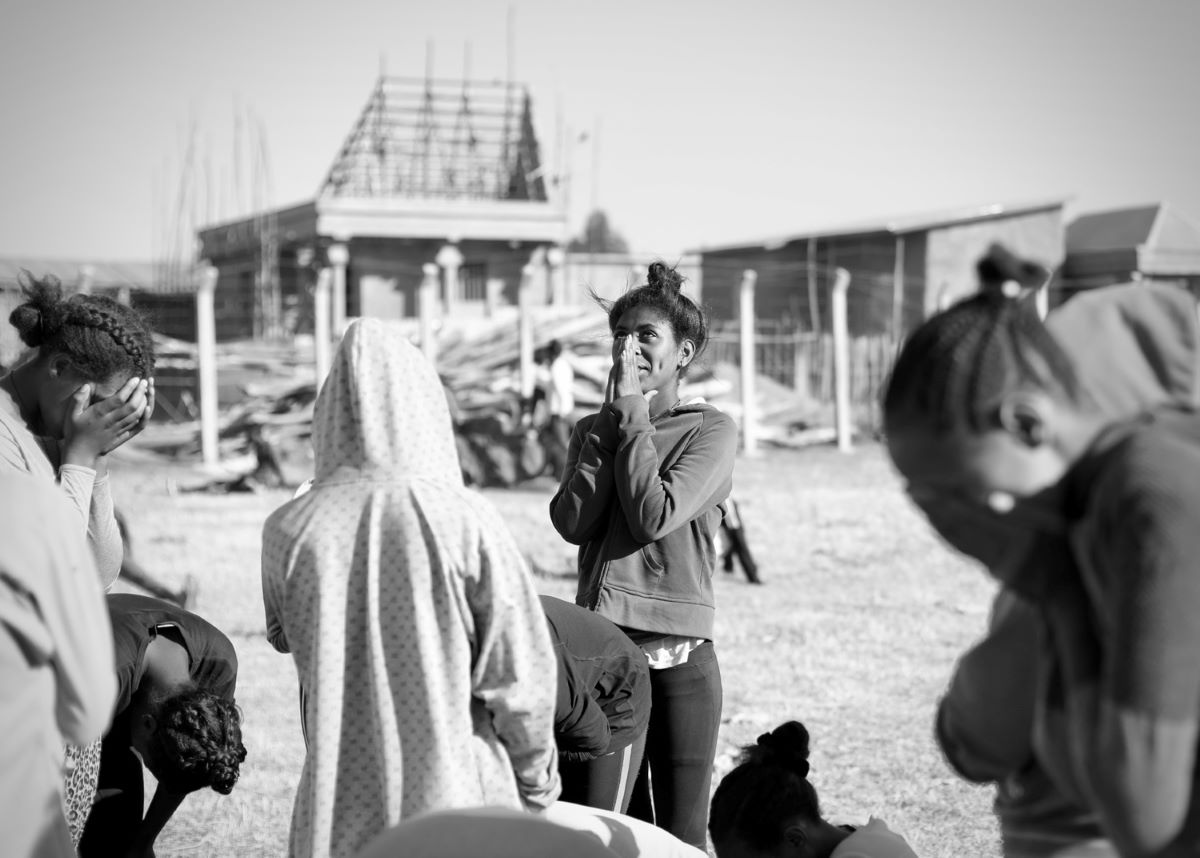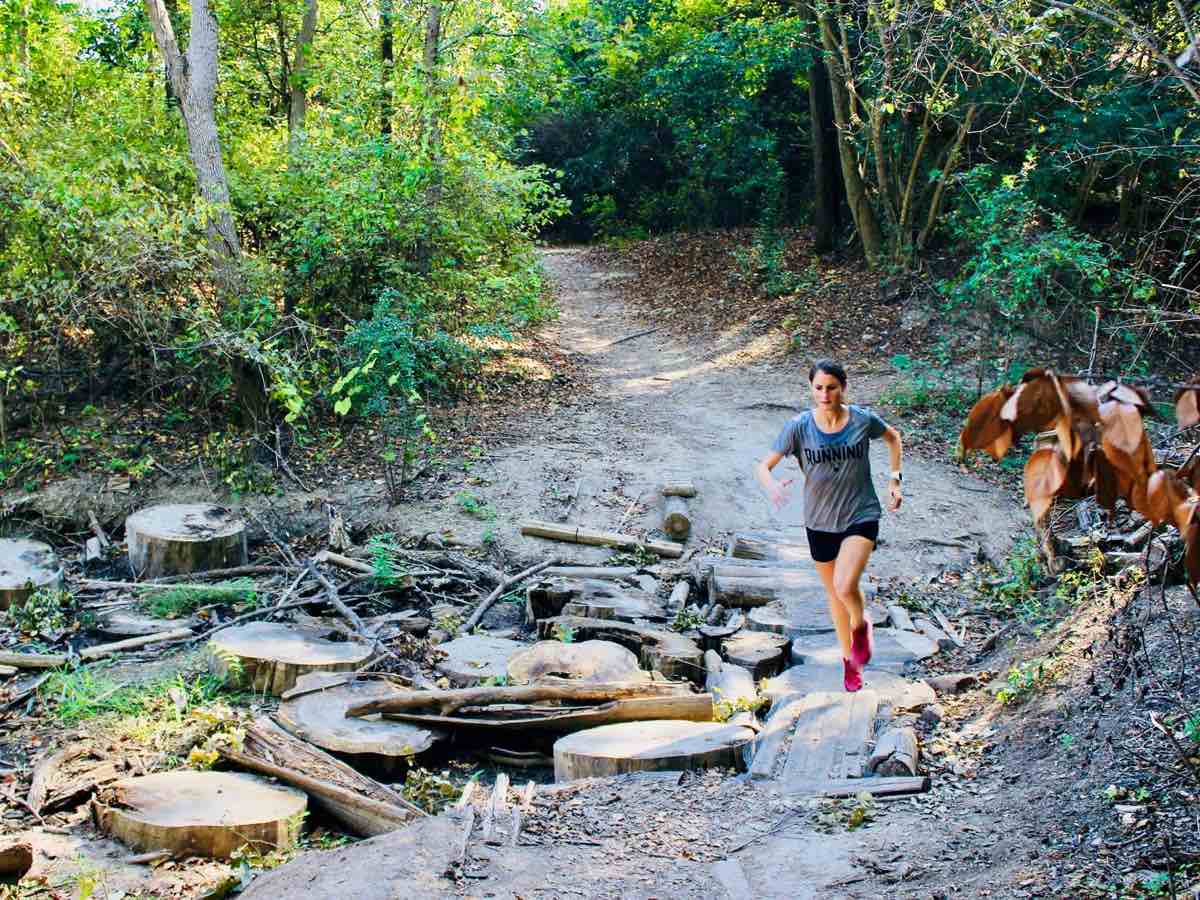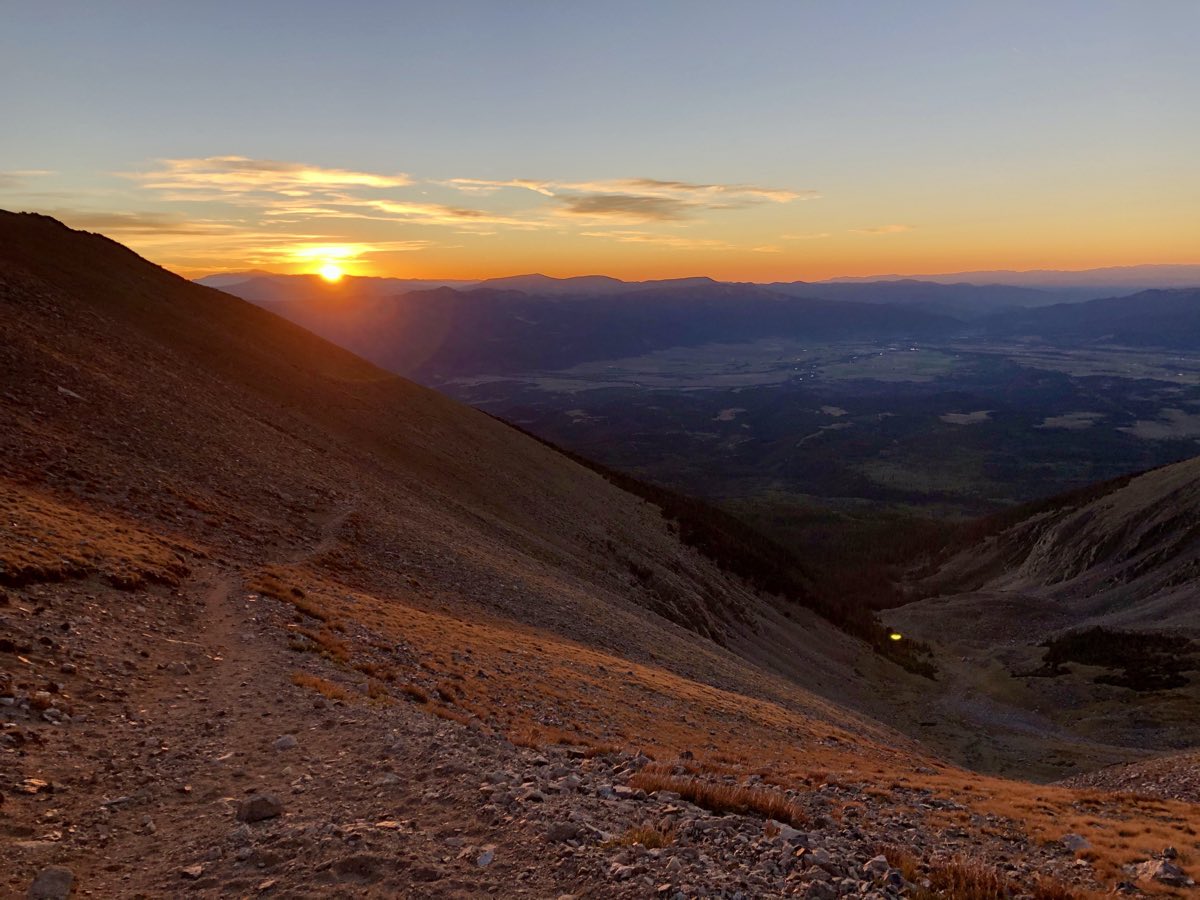There is a well-known film from 1981 called Chariots of Fire. There are two protagonists — 1924 Olympic runners Eric Liddell and Harold Abrahams. In a memorable scene, Eric Liddell speaks to his sister, Jennie. She urges him to return to missionary work in China, but Eric assures Jennie that he is glorifying God with his running. “I believe God made me for a purpose, but He also made me fast,” he says. “And when I run, I feel His pleasure (1).”
If you are a runner and a person for whom faith is important (as it is for me), likely this movie has been quoted at you a lot. Oftentimes, when people inquire about how my faith connects to my running, they are inclined to answer for me. “Oh, I know. You feel God’s pleasure.” They attribute to my running a calling or vocation.
To be clear, it is. They are correct. It is a vocation for me, and I do feel God’s pleasure. But I also feel a lot of other things — endorphins, for example. I feel the wind in my hair and sunshine on my face. I feel satisfaction in the regularity of routine and in having agency over my health. I feel productive and strong. When I am running, I feel a lot of things. So, I sometimes wonder whether I would be able to tell the difference between feeling God’s pleasure, as Eric Liddell describes, and feeling endorphins. Both are affirming. Both feel very nice.
Spirituality and Running
Recently, I have been thinking a lot about spirituality and running, in part precipitated by my participation in a panel discussion on the topic, led by Ian Golden and also featuring Mario Mendoza and Michael Dubova, on the Trails Collective Podcast. It is common for runners of all backgrounds and creeds to draw on the language of spirituality to describe ultramarathon events. What should we make of that?
In this column, my intention is not to assess the nature of these claims or to examine the content of these experiences. Rather, I aim to point out three reasons why people readily make spiritual attributions to their ultrarunning experiences, and to describe why it seems natural to do so.
1. The Liturgical Character of Running
Liturgies are actions or act-types, which often occur in sequences in a religious context. Liturgies are often social; they happen in a collective setting. They are constituted by the physical events or touchstones that order worship. Examples include bowing, singing, and kneeling (2).
Notably, liturgies are not strictly about themselves. Bowing is not about bowing. These actions gesture toward something beyond them, and we perform them with some degree of automaticity or habit, focusing our attention on the subject toward which they are directed, namely God.
Interestingly, runners are similarly liturgical creatures. We often rely on habituated action sequences and physical routines in preparation for our races — drinking water at a certain time, tying our shoes in a particular way, positioning our bibs just so, and performing a sequence of stretches that quiet our minds and ready us for something big. Having this kind of embodied automaticity in our actions frees us to focus our attention on where it belongs — the race ahead of us. Without these liturgies in place, as embodied creatures, our attention might scatter.
Other sports are likewise liturgical. There are coin flips and direction changes. Congregants sit and rise at expected intervals and participate in chants. There is a kinship to worship in athletic performance because of these liturgies. I am not sure what to think about this, but it is true. Perhaps the liturgical character of running is a reason why we are inclined to think in spiritual terms about our sport.

Following a Girls Gotta Run team speed workout in Bekoji, Ethiopia, several girls say a quick prayer of thanks for a safe and successful practice. Photo: iRunFar/Meghan Hicks
2. Gestures Toward the Infinite
In a 2006 essay entitled “Roger Federer as Religious Experience,” David Foster Wallace describes tennis in theologically saturated terms (3). He refers to Wimbledon as the “cathedral of the Centre Court” and describes the “kinetic beauty” of high-level play. Describing Roger Federer’s movements, Wallace writes of the “great liquid whip of Federer’s forehand,” an “otherworldly” court sense, and an “eel-like all-body snap” as he strikes the ball (4). Moreover, Wallace claims that these words only gesture toward capturing the beauty of Federer’s game. He writes, “You more have to come at the aesthetic stuff obliquely, to talk around it, or — as Aquinas did with his own ineffable subject — to try to define it in terms of what it is not (5).”
Athletic mastery is often like this. It involves a kind of excellence that is beautiful and ineffable and evokes awe. And while Federer plays within the bounds of physics (he must), it seems as though he exceeds natural laws. He is ascendent, mysterious, and seemingly infinite.
Running 100 miles is not running forever, but sometimes it feels as though it is. It feels infinite. It is interesting that, in the athletic context, as we approach (or sometimes exceed) our perceived limits, there is a sense in which we feel boundless or limitless.
I think some of this is hubris. But I also think negotiating our own personal limits inclines us to wonder about the character and quality of transcendence. If being a human means I can go this far, then, naturally, I wonder what exactly is beyond that barrier.
3. Room for Wonder
On a regular basis, I sit indoors and research. I stand in class and lecture. I answer students’ questions by email, and I stare too long at a screen while writing. Running gets me outside. It reminds me that I have a body. It acquaints me with natural spaces, and it offers me the occasion to watch the sunrise — every morning. Running provides me with the space to pray, reflect, repent, and ask big questions about what it means to be a human. It compels me to wonder about things, rather than google them.
I think that one of the major reasons running and spirituality are often discussed in tandem is that running provides an opportunity to wonder. The big questions we have about who we are and what we are doing here are critical human questions, but we are often so distracted, captivated by devices, and bound up in schedules that we fail to ask them.
Ironically, running is often a time when we are the most internally still. We can ask big questions. This is a kind of spiritual practice.
Final Thoughts
There are many reasons why we are drawn to think about athletic practice in spiritual terms. Here I discussed three. Other possibilities include the way in which running frequently humbles us, the way it reveals our human weaknesses and vulnerabilities, and how running in beautiful places can occasion reflections about natural theology and authorship in nature.
Vocation or otherwise, running plays a constructive role in my faith life. Running is not my church. Church is my church. Still, I am grateful for the opportunities the sport provides for me to think, pray, and examine my limits on a daily basis.
Call for Comments
Do you find there is a link between your running and your spirituality?
References
- Hudson, H., Welland, C., & Puttnam, D. (1981). Chariots of Fire. London: Enigma Productions.
- Cuneo, Terence. (2016) Ritualized Faith: Essays on the Philosophy of Liturgy. Oxford University Press, 10. This text is a great resource for thinking philosophically about liturgy.
- Foster Wallace, David. Roger Federer as religious experience. The New York Times. 20 August 2006 Web <https://www.nytimes.com/2006/08/20/sports/playmagazine/20federer.html>.
- Foster Wallace, David. “Roger Federer as religious experience”.
- Foster Wallace, David. “Roger Federer as religious experience”.


